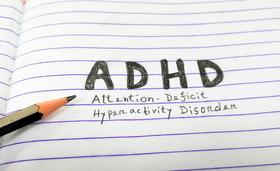Interagency King County Jail serves 30 students in grades 6-12.
Minority enrollment was 84% of the student body (majority Black), which was higher than the Washington state average of 50% (majority Hispanic and Asian).
School Overview
Grades Offered
Grades 6-12
Total Students
30 students

Total Classroom Teachers
n/a
Students by Grade

School Rankings
Student : Teacher Ratio
n/a
16:1
American Indian
7%
1%

Asian
7%
9%

Hispanic
17%
25%

Black
53%
5%

White
16%
50%

Hawaiian
n/a
1%
Two or more races
n/a
9%
All Ethnic Groups



School Statewide Testing
School District Name
Source: National Center for Education Statistics (NCES), WA Dept. of Education
Frequently Asked Questions
How many students attend Interagency King County Jail?
30 students attend Interagency King County Jail.
What is the racial composition of the student body?
53% of Interagency King County Jail students are Black, 17% of students are Hispanic, 16% of students are White, 7% of students are American Indian, and 7% of students are Asian.
What grades does Interagency King County Jail offer ?
Interagency King County Jail offers enrollment in grades 6-12
What school district is Interagency King County Jail part of?
Interagency King County Jail is part of Seattle School District No. 1.
Recent Articles

Banishing the Phone-based Childhood
The article advocates for a dramatic cultural shift - delaying kids' smartphone ownership until high school and social media access until 16, promoting more free play, and fostering a healthier, screen-free childhood through collective action.

Spanking in Public Schools: The Ongoing Debate
Indeed, there are still school districts today in America that allow teachers to spank students. Learn about the current spanking situation in schools and why the debate continues to heat up.

Understanding ADHD in Children: Signs, Diagnosis, and Support Strategies
This comprehensive article explores the complex nature of attention-deficit/hyperactivity disorder (ADHD) in children, providing insights into its symptoms, diagnosis process, and effective support strategies. From recognizing early signs to navigating the diagnostic journey, parents will gain valuable knowledge to help their child thrive. Expert insights, real-life examples, and practical tips empower readers to create a supportive environment that meets the unique needs of children with ADHD.





